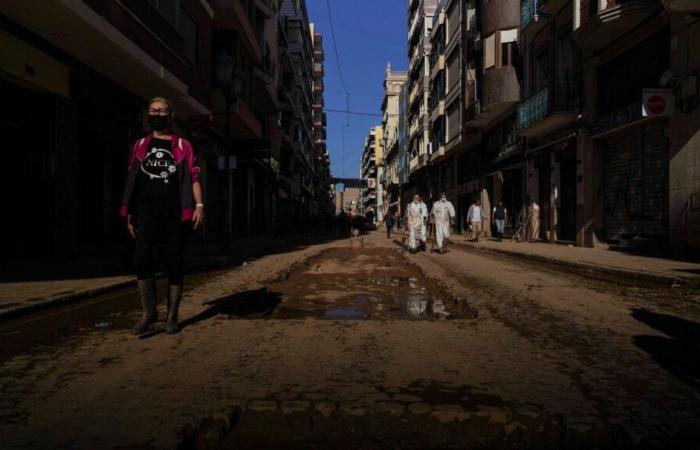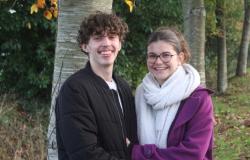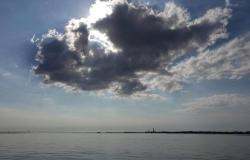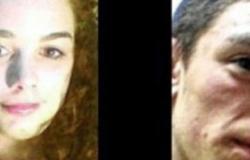The ocher mud that devastated the city is still everywhere in Algemesi. It has entered homes and remains in everyone’s minds. “The current took everything away”said Maria-José, pointing to her house. It's a disaster and a clear assessment two weeks after the flood. “I am ruined, I have nothing left. I am more dead than alive”sighs her husband José-Luis. The day after the flood, the man said he had a heart attack. It's stress, believes Maria-José, who now fears that her husband will sink into depression. “I don't know what I would have preferredhe says, die or see what awaits me today.” “Don't say thattakes his wife back, At least we're alive, thank God.”
In the street littered with trash and car wrecks, a woman walks by with a bag of groceries collected from volunteers. Her name is Hayat and she is exhausted. “My daughter had a panic attack this morningshe says, and I was crying from all this accumulated anguish. My stomach hurts and if I don't take a sleeping pill, I can't sleep.”
The mental health of disaster victims is one of the major problems
Two weeks after the disaster, Laetitia Pellicer-Bossis, psychologist in Valencia, is still on the ground, in contact with residents. She is already seeing after-effects linked to this traumatic event, “like constant exhaustionshe reports, muscle pain, physiological, dermatological, gastric problems, anxiety-depressive disorders, memory or sleep problems”, she lists.
There is a need for emergency care for these victims, according to this psychologist. Unfortunately, many victims are still cut off from the world. “If we don’t go out into the streets to look for these people, they are completely abandoned”explains Victor, doctor. With his team of volunteers, he travels the town of Catarroja looking for elderly, disabled people, or people suffering from psychological problems. “We have a problem with these people stuck at homehe specifies, and who have health needs that are increasing every day. We are talking about very vulnerable people, who are left to their own devices. And if we don't go door to door trying to find them, they go unnoticed.”
Find the right words
Two weeks later, there are still people isolated, still water everywhere. With power cuts and businesses closed, a return to normal is impossible. Schools, in particular, are still affected, and children “need normality”laments Maria, a teacher in Algemesi. So while waiting for the students to return, Maria and her colleagues undergo special training, “a course to prepare us for the start of the school year”she describes, to find the right words to speak to the children when they welcome them. In the coming days, this will be the priority of teachers and psychologists in the region.






